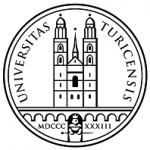项目介绍
The Department of Near Eastern Languages and Civilizations (NELC) encompasses the study of ancient and modern peoples, languages, literatures, cultures, and societies of the Near and Middle East. Languages include Akkadian, Arabic, Aramaic, Armenian, Babylonian, Egyptian, Hebrew, Iranian, Persian, Sumerian, Turkish, and Yiddish.
The NELC faculty is world-renowned and Harvard’s educational resources in the various fields of Near Eastern studies are virtually unparalleled. Widener Library, for example, has a broad assortment of holdings in Arabic, Armenian, Hebrew, Persian, Turkish, and Yiddish literature. For students interested in biblical or other ancient Near Eastern studies, or in the archaeology of the Near East, a variety of opportunities for archaeological work in the Middle East are available. Students interested in the modern Near Eastern political or social studies should familiarize themselves with the resources and personnel of the Center for Middle Eastern Studies (CMES). CMES is the coordinating body and a primary source of intellectual and material support within Harvard for scholarly pursuits covering the vast area between Morocco and Iran, and beyond. It was the first center of its kind and is responsible for teaching as well as research. The Center for Jewish Studies (CJS) is the focal point at Harvard for the study and teaching of Judaica through publications, fellowships, lectures, and symposia on topics of interest to scholars and postdoctoral research fellows. The Harvard Museum of the Ancient Near East, in which NELC is housed, has a superb collection of ancient and medieval artifacts representing many of the cultures of the Middle and Near East. As a university teaching museum, the Semitic Museum is committed to providing access to these materials for study and teaching.
Fields of Study
Ancient Near Eastern Studies
Ancient Near Eastern studies’ sub-fields include Akkadian and Sumerian studies, archaeology of the Levant, Hebrew Bible/Old Testament, Iranian studies, and Egyptology.
Jewish History and Culture
The program in Jewish History and Culture focuses on the history and literature of the Jewish people from late antiquity to modern times, and is divided chronologically into five periods: the Hebrew Bible in its Jewish interpretive context; ancient Jewish history and culture; medieval Jewish history and culture; modern Jewish history and culture; and modern Jewish literatures. While students generally choose to focus their interests by period, the program itself stresses “vertical” competence: all students are expected to gain some expertise in chronological periods other than their main one. As an alternative to specialization by chronological period, students may choose to focus their studies along thematic lines, for example on the history of Jewish biblical exegesis. Ability to work with classical Hebrew sources in the original is a prerequisite for admission to the program.
Histories and Cultures of Muslim Societies
The Histories and Cultures of Muslim Societies program focuses on the histories, literatures, philosophy, religious thought, and legal institutions of Muslim societies. Its primary strength lies in the coverage of a broad range of fields of study in pre-modern and modern periods, particularly with regard to Islamic civilizations in the Near and Middle East. As a result of a growing recognition that the study of Islam and Muslim societies must embrace wider, more inclusive study of the diverse ethnic, racial, and religious groups that have been constituents of Muslim cultures in different parts of the world, the program also provides students the opportunity to engage in the comparative study of Muslim societies, particularly in South Asia and Africa and their complex connections with the Near East.
The program in Histories and Cultures of Muslim Societies currently includes the following subfields:
- Arabic Language and Literature (classical and modern)
- Islamic Religion and Culture
- Islamic Intellectual History (especially Philosophy and Theology)
- Islamic Institutional History
- Islamic Law
- Indo-Muslim Culture: The Study of Muslim Societies in South Asia
- Islam in Africa
Admissions Requirements
Writing Sample
In addition to the application materials requested by GSAS, no application to the Department of Near Eastern Languages and Civilizations will be considered complete unless accompanied by a recent sample of the student’s written work (e.g., term paper, senior thesis, master’s essay). There is not a specified length for this writing sample. However, one should keep in mind that the admissions committee may not have the time to examine carefully a large writing sample in its entirety. Please upload your writing sample to your online application along with your statement of purpose and transcripts.
Language Requirements
For the master of arts (AM) program: Before seeking admission, applicants will normally have attained a basic knowledge of a Near Eastern language central to their field of concentration. In addition, advanced reading knowledge of either French or German is required before admission; the student will be tested prior to the first week of classes in the first term.
For the doctor of philosophy (PhD) program: Before seeking admission, applicants will normally have attained an ability to read and comprehend sources in the Near Eastern language central to their field of concentration. In addition, advanced reading knowledge of French or German is required before admission to the doctoral program; the student will be tested prior to the first week of classes in the first term.
More information is available from the Department of Near Eastern Languages and Civilizations and GSAS Policies.
联系方式
电话: (617) 495-1000相关项目推荐
KD博士实时收录全球顶尖院校的博士项目,总有一个项目等着你!






